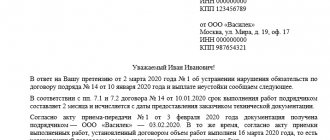We are all looking forward to our next vacation and dreaming of the blue, blue sea.
And when traveling abroad, we prefer to outsource the organization of our vacation to a tour operator - after all, it is much more convenient and cheaper to buy a package tour: with flights, transfer from the airport to the hotel and back, hotel accommodation, and sometimes with excursions.
After purchasing the ticket, we are already full of anticipation for a relaxing holiday. But our expectations are not always met - sometimes the mood deteriorates already at the airport, for example, when we find out that the plane took off without us an hour ago. However, with modern online services and departure boards, the possibility of such a nuisance can be reduced to almost zero, you can take responsibility for your trip and independently track the departure time of your flight at the airport.
But most often, misadventures begin upon arrival in a foreign country, where no one even knows the local language. This is where overbooking happens: the hotel or room does not correspond to the purchased category. The tour operator is always to blame for this: he did not notify about the change of flight or change in departure time; failed to pay for accommodation in the tourist’s country of residence on time; I booked a hotel room late, which is why there was an overbooking.
The tour operator cannot get away with improper execution of the contract. But in order to hold a travel agency accountable, you need to stock up on evidence confirming to the court the poor quality of the service provided - after all, tour operators rarely voluntarily return money. Let's consider when and what to do.
Preparing for the tour
To avoid problems when applying for a tour package, you need to make inquiries about the tourist organization. Any travel agency must be registered in the State Register. When signing the agreement, you need to pay attention to what is written in the “Obligations of the Parties” section. Pay attention to the paragraph that describes the reasons for returning the vouchers, and what financial losses the buyer incurs.
All received documents must be kept until the end of the trip. In case of controversial issues, they will help resolve them.
Reasons why a citizen can refuse a trip and receive compensation payments:
- for personal reasons;
- due to circumstances beyond anyone's control;
- due to the fault of the travel agency.
List of reasons due to the fault of the organizer
Travel agencies and their partners are responsible for the entire process of organizing a tourist route. This is reflected in Article 9 of Federal Law No. 132.
The partners are:
- transport companies carriers;
- third parties;
- tour operator
In case of a failed trip, the tourist contacts the travel agency for a refund and compensation for the canceled tour. According to Art. 451 of the Civil Code of the Russian Federation and Art. 10 Federal Law No. 132, the organizer’s fault is the refusal of its obligations or their changes that were made without notifying the client. These include:
- change in departure times;
- bankruptcy;
- inability to obtain a visa;
- the tour operator refused to use the services of the transport campaign due to unexpected unprofitability. This may happen due to a sudden increase in fares.
List of reasons for independent circumstances
The legislation provides for the following independent circumstances that caused the cancellation of the tour:
- natural disasters;
- emerging epidemic of a dangerous disease;
- mass riots;
- military coup;
- The life and health of a tourist is under threat due to the changed situation in the country.
List of reasons for personal reasons
A travel agency client has the right to cancel a trip due to personal circumstances. These include:
- force majeure circumstances in the family;
- disease;
- death.
Underwater rocks
The procedure for refunding funds under an agreement with a tour operator largely depends on the conditions specified in the agreement.
The agreement may specify additional clauses that do not allow cancellation of the tour within the established time frame. Attention! It is common that tour operators stipulate penalties in the contract for canceling a trip. If the terms contradict current legislation, the contract may be declared invalid.
During pre-trial settlement, the tour operator's client must retain all documents related to the dispute. The company's response, payment orders, and claim will be additional evidence that the tourist is right in court. In addition to compensation, the tour operator may be subject to a fine of 50% of the amount of the claim.
Deterioration of the situation in the host country
The basis for confirming the deterioration of the situation in the host country is an official document from the Ministry of Foreign Affairs, the Ministry of Emergency Situations, the Federal Agency for Tourism, and the Ministry of Health. It can be seen in the form of publications in print media or on the websites of organizations. If a person still enters the country despite the warning, he will not be able to count on a refund for his interrupted vacation.
If a threat arises while staying in another country, the tourist can interrupt the trip and contact the agency with an application to receive the difference between the funds spent and the amount paid to the travel agency.
Complaint to a tour operator from a travel agent
A tourist can make a claim to a travel agent who, on behalf of the tour operator, entered into an agreement with the tourist for a particular tourist product, i.e. sold the product. In turn, the travel agent has the right to file a claim with the tour operator who created the corresponding tourism product.
ATTENTION : if a travel agent misled a tourist by providing false information about the tourism product generated by the tour operator, then the travel agent himself bears responsibility.
IMPORTANT : according to the position of the Supreme Court of the Russian Federation, expressed in the Resolution of the Plenum of June 28, 2012 No. 17, the tour operator is responsible to the tourist for how well the obligations under the contract for the sale of a tourist product will be fulfilled.
Determination of refund amounts in case of personal force majeure circumstances
The issue of refund for a tour package is regulated by Article 32 of Federal Law No. 2300-1, Article 782 of the Civil Code of the Russian Federation, Article 10 of Federal Law No. 132.
Categories of funds
There are refundable and non-refundable funds.
Returnable:
- consular fee;
- money for purchased tickets;
- Commission of the bank;
- courier delivery costs;
- costs for logistics services.
According to Article 108 of the Air Code of the Russian Federation, money for an air ticket is partially refunded if there is still more than a day before departure. This applies to standard and charter flights.
The use of normative documents when considering cases of refusal to travel on a voucher
The applicant has the right to receive the difference between the amount spent and the amount paid. Tour operators often include in the contract the accrual of fines and penalties. However, these measures can only be applied if one of the parties violates the contract. This does not apply to the client who refused the trip. In this case, Art. 10 Federal Law No. 132 for voluntary refusal to travel.
A tourist who refuses a trip must pay a penalty to the travel agency.
- circulation period 15-20 days – penalty in favor of the agency 30%;
- circulation period 10-15 days – penalty 50%;
- application 4-10 days before departure – penalty 90%
- Application in less than 4 days - 0% penalty.
Overbooking
Careless tour operators do not always pay for accommodation in the chosen hotel immediately after the purchase, but do it at the last moment.
For example, they bought a ticket 1 month before the travel date, or even 2 months, but the documents, including the voucher, were issued only a few days before departure. We checked the documents - everything is correct and the hotel voucher for accommodation indicates the chosen and paid hotel, but upon arrival in the country we approached the representative of the tour operator in this country at the airport, he gave the number of the transfer bus, we approached the bus, called our hotel, and the transfer guide said that she does not have such a hotel. How - no? Here are the documents! Then the guide asks for our last name and states that we are overbooked and are now going to another hotel. We specify the hotel category and receive the answer: yes, it corresponds to the selected category. However, in reality, it is good if the replacement hotel is located in the same locality as the booked one - it happens that particularly careless tour operators can replace not only the hotel, but the locality, and not at all with the nearest one. At the same time, they don’t even warn that this hotel is located several tens of kilometers further from the selected locality.
Therefore, the first thing you need to do after you find out about the replacement of the hotel is to check with the transfer guide where the replacement hotel is located and its exact address. Then look on the map to see how much further it is from the one you previously selected, and decide how satisfied you are with it. The offline version of the map of the country you are going to must be downloaded to your mobile phone while still in Russia, since most often there is no Internet at the airport of the host country, and in some countries there are generally problems with the Internet.
If the proposed hotel does not suit you, then this issue needs to be resolved at the airport. Once you check into a replacement hotel, there is virtually no chance that you will be moved to another hotel. At the airport, you can refuse to stay at this hotel in writing - in this case, one copy of the act with a note from the tour operator’s representative must be kept with you, so that upon returning to your homeland you can recover the costs of living in another hotel. When checking into another hotel, we be sure to keep all payment documents confirming the amount of living expenses.
When registering a refusal to stay at a replacement hotel on the letterhead of a tour operator representative, you must carefully read the document. Advice: you should only refuse a hotel, as well as a transfer if you do not need it, but the return flight will be useful. Only now you will need to track the return departure time of the plane yourself, since charter flights often change the departure time.
As a rule, no one really looks out for a backup hotel option in advance, which is why many have to agree to spend the night in the proposed hotel - at least for a night.
Therefore, we arrive at the hotel and quietly check-in, because the host hotel does not bear any responsibility to you for overbooking. The claim in 2 copies can be written at the airport and handed to the representative of the tour operator with a note of acceptance. If there was no time for this at the airport, then hand the claim to the hotel guide. True, hotel guides often refuse to mark the acceptance of the claim, citing the fact that they do not have the authority, but they will pass it on.
In this case, a note should be made on the claim: the representative of the tour operator refused to mark the acceptance of the claim; it is also recommended to record this refusal on video.
Next, we record all the shortcomings of the presented accommodation facility. This could be a photograph of the room, public areas of the hotel, its location (proximity to the road, lack of sidewalks, evening lighting, infrastructure near the hotel, while you booked in the center of a tourist area with all the infrastructure). You can also request a certificate of check-in at a hotel of the appropriate category from a representative of the host party. But, as a rule, such a request is refused. We record the refusal on video.
How can a tourist make an application?
If the travel agency refuses to pay the money, a statement is drawn up in which the client describes the entire situation with a specific statement of facts and at the end asks to fulfill its conditions. The application must be delivered in person or by registered mail. The company is given 20 days from the date of receipt of the application to respond. After this period, the client can go to court without waiting for a response. Additional ways to return advance funds
In situations where you cannot use the voucher for personal reasons, and the agency does not return the money, you can try to sell the voucher to another person. If such a person is found, it is necessary to notify the company to reissue the voucher. For this you will have to pay for tourist risk insurance
Insurance is issued for a trip lasting more than 30 days. In countries with a visa regime, insurance is automatically included in the cost of the trip. The possibility of insurance is stipulated in Article 10 of Federal Law No. 132.
A little about moral hazard
The legal basis for claims for compensation for moral damage is contained in Art. 1099-1101 of the Civil Code of the Russian Federation. However, there is still no unified legal practice to resolve this issue. Although the maximum amount of claims is not limited, the final amount is determined by the court independently. The following are taken into account:
- degree of severity and nature of moral consequences;
- the presence of the very fact of some suffering;
- consideration of the specific harm that has occurred.
The burden of proof of the existence and extent of moral damage caused lies with the plaintiff.
There are special formulas that allow you to more or less accurately determine what amount of compensation is optimal. But in the case of tourist claims, you can do it easier - the maximum amount is determined by the size of the contract, plus a few thousand rubles. The latter is done so that the court has room to maneuver in the direction of reducing the claims.
Travel agency bankruptcy
Bankruptcy is the inability to fulfill the obligations of one of the parties. A list of typical cases when a client contacts the insured in the event of bankruptcy of a travel agency:
- errors in documentation;
- incorrect information about the services provided.
Action plan in case of suspected bankruptcy before travel
- draw up an application for the head of the agency, indicating the details of the contract;
- refusal to respond is interpreted as failure to fulfill obligations. After the deadline for responding has expired, you should contact the insurance company.
- after the insurance company refuses, go to court.
Procedure if a travel agent’s client travels to a holiday destination
The nature of all actions in this case should be aimed at collecting and preserving documents for payment for services, accommodation, food, etc. Only after returning home can the tourist begin to return the money spent.
When to expect an answer
Decree of the Government of the Russian Federation No. 452 of July 18, 2007 “On approval of the Rules for the provision of services for the sale of tourism products”, as well as Art. 31 of the Law “On Protection of Consumer Rights” No. 2300-1 of 02/07/1992 establishes a 10-day period for responding to a consumer complaint. Moreover, we are talking about calendar days, not working days. Clause 5 Art. 28 of the Law “On Protection of Consumer Rights” defines liability for violation of these terms - 3% of the cost of the service per day. As already mentioned, travel agencies have extensive experience in dealing with consumer complaints. In addition, they maintain a staff of lawyers who are well acquainted with the law. Therefore, if the claim is drawn up correctly, and in a conversation or even in the text of the claim itself you show that you are familiar with the laws, then the answer will arrive on time, within 10 days. Most likely, it will contain the terms of some kind of settlement agreement that partially satisfies your requirements.
We advise you to seriously consider it. After all, in court you will have to deal with experienced lawyers who are able to refute many of your arguments and challenge many documents. In this regard, you may need the help of an experienced lawyer to support your case. Therefore, if the amount of damage is small, and the very fact of satisfying your demands is important to you, then it probably makes sense to agree to a settlement. If not, then judicial review of the case is inevitable.
What is a deficiency in service and work
Work is the action of a performer with a material result for the consumer. A service is an action with a specific purpose for the consumer, but without a material result. Repair is work, haircut is a service.
A defect is when a work or service:
- does not comply with the purpose of use, the terms of the contract with the consumer or GOST and other similar requirements - Art. 4 Laws;
- unsafe for people and property - Art. 7 of the Law;
- not provided on time - art. 27 of the Law;
- provided without informing the customer about consumer properties, as a result of which the quality suffered - art. 10 and 12 of the Law.
An example of a deficiency: before the service was provided, the contractor did not provide the customer with comprehensive information about the trip
The family bought a tour to Vietnam. Upon arrival, it turned out that there was a noisy construction site next to the hotel, making it uncomfortable to rest. The tour operator did not warn about the construction either in instructions for tourists or on the official website. The court found this service to be of poor quality - case No. 33-15553/2016.
Example of a flaw: the service is not secure
A woman took her mink coat to the dry cleaner. Upon receipt, I saw that the fur fabric was torn in some places. They organized an examination and found out that the fabric had become thinner due to exposure to chemical solutions during cleaning. Such a service is unsafe for the consumer’s property - case No. 33-11921/2019.
A significant drawback is when the service or work result cannot be corrected, or it can, but it is expensive or pointless for the customer.
An example of a significant deficiency: the result of the work does not comply with the purpose of use and building regulations
A man ordered the installation of interior doors in a private house from the company. After installation, the door leaf became warped, cracks appeared and the doors began to jam - impossible to close. The examination showed that the work does not comply with the requirements of regulatory construction documentation and generally accepted methods of installing doors in wooden houses - case No. 33-21381/2018.
Methods for filing a claim with a tour operator
The claim must be submitted to the tour operator in such a way that it can be verified and subsequently proven that the claim was received by the tour operator. In this case, you can use several ways to file a claim, namely,
- ♦ submit the claim directly to the tour operator under the mark on the copy of the consumer (the person making the claim);
- ♦ send by registered mail with notification and a list of the attachment, which will allow you to subsequently track when the claim was received by the tour operator;
- ♦ send a telegram;
- ♦ submit a claim by email.
Of these methods, the first two are the most reliable. The sending of a telegram may also indicate compliance with pre-trial order, however, the content of such a telegram will be small. Sending by email, if such a possibility is not agreed upon in the contract, may lead to a future situation in which the tour operator will say that it has not received any claim.
TIP : When filing a claim, use several methods at the same time.







